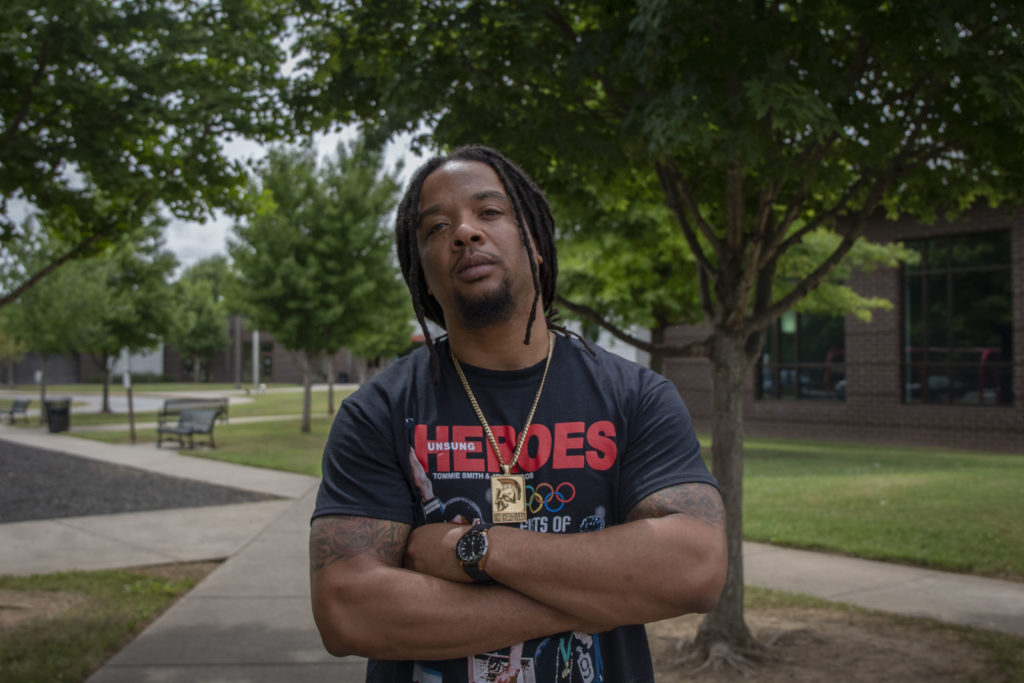
The high-profile police killings that happened early this summer set off reflection for black men throughout America who identify with the violence.
One African American man works with Nashville teens and tries to prepare them for the difficulties they will face as black men. But he admits he’s still struggling to process it all himself.
Tay McGee is from Grand Rapids, Mich., and moved to Nashville with his family when he was 13 years old. He now runs two programs mentoring young black men in Nashville and is a real estate investor. McGee says his time being locked up helps him understands the teens struggles and that his current lifestyle shows what their future could be.
Listen to his conversation above, or read interview highlights — and some extras — below.
- More: Listen to more first-person narratives about racism in Nashville in our series Breaking Points.
Interview Highlights
On expectations of Black men
Before [a military person] goes out, they will train him, prepare him, give him all the necessary tools he needs to be ready to be in a war zone. And once he gets into that war zone and that traumatic action takes place and the trauma is too much, they’ll pull them out. Before he goes back into society, they’ll give him counseling. They help him with his PTSD. They’ll do all the things they can to help him acclimate back into community and society.
A young black male can be in the community and witness those same traumas firsthand, can see a person die right in front of them. And then they go back to school the next day, and they’re expected to conduct themselves the same as all their peers. That’s unlikely. That’s harsh. That’s almost impossible. But we expect them to live up to a higher level than we expect adult soldiers to even live up to.
Black males get to a point where they feel like they get very exhausted, feel like giving up some time. … Not only do you get exhausted, you get frustrated. Then that becomes anger.
‘It’s hard to get them off the ledge’
It’s hard to speak to a generation of young people and get them off the ledge, when I feel like coming up there and jumping with them. Use my training to say, “I know you’ve been mistreated. I know nobody has listened to you. I know nobody allows you to have a voice. I know that you’re trying your best and giving your all, and the world keeps shorting you, but you’ve got to keep pushing.”
It’s hard to convey the message of hope or inspiration when you’re not seeing it. It’s hard to push somebody to believe when nothing is changing. I can’t tell you we are in a better situation than a long time ago. We keep asking white people or people with power to help us with these efforts. When we try to go and do it ourselves — Black Wall Street, for example. It’s burned down. So we really get left without the blueprint of how to move forward.
Vision for liberation
Because of always working and all the different fights, we really don’t have a lot of time for self-care. I told one of my partners the other day — he was moving so fast, I said, “Boy, you might need to focus on self-care.” His actual response was, “What is self-care?”
If you mentioned self-care to certain neighborhoods, they’ll say, “What is that?” They’re so busy either trying to achieve something for themselves or for their family. They never even took the time out to think, “What do I truly desire and what do I truly value?” It’s important that we really and eternally look to see: What’s making me happy? So that’s liberation to me.

